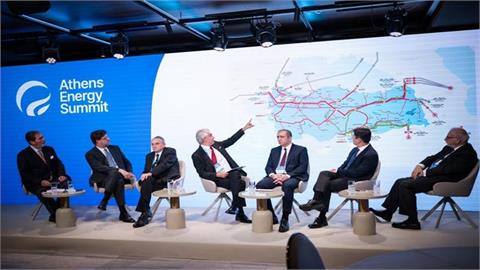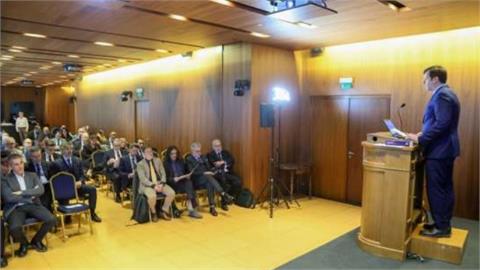On July 27 the Institute released its latest Monthly Analysis, part of the SEE Energy Brief, which deals with the question of natural gas and its continuing integration in the region’s energy systems despite the ongoing crusade by the European Commission and its various executive branches, including the EIB,against further use of gas on account of its detrimental role in climate change mitigation. The analysis, titled “Is the future of Natural Gas in the EU at stake?” at first presents the background on EU’s attempts to exclude gas as a main fuel for power generation and then goes on to explain the compromise deal reached during the Portuguese presidency for major gas projects to retain their status as PCI’s under certain strict environmental conditions.
On July 27 the Institute released its latest Monthly Analysis, part of the SEE Energy Brief, which deals with the question of natural gas and its continuing integration in the region’s energy systems despite the ongoing crusade by the European Commission and its various executive branches, including the EIB,against further use of gas on account of its detrimental role in climate change mitigation. The analysis, titled “Is the future of Natural Gas in the EU at stake?” at first presents the background on EU’s attempts to exclude gas as a main fuel for power generation and then goes on to explain the compromise deal reached during the Portuguese presidency for major gas projects to retain their status as PCI’s under certain strict environmental conditions.
Although the countries of SE Europe look upon gas as their best hope, in addition to renewables, for a quick decarbonisation, the Commission mandarins in Brussels are trying to dissuade its wider use in the region as they have set different priorities with Green Deal devotees sternly opposing any further use of gas for power generation and industrial production or for commercial and domestic uses. The IENE Analysis calls for a radical revision of EU policy towards gas. “We have now reached a situation where it is most urgent for the European Commission, governments and corporations industry to sit around the table and work out a new strategy to include natural gas as part of the solution towards achieving the new emission goals of 2030, and not exclude it”, underlines the Institute’s latest analysis.
On June 8, ΙΕΝΕ organized an online workshop on “Gas Markets in Transition in SE Europe” and the main conclusion was that without natural gas EU’s highly ambitious 2030 and 2050 goals cannot be really achieved in SE Europe. The general consensus of the workshop was that natural gas is a transitional fuel and we have to utilise it as such in order to reduce GHG emissions and finally succeed (if ever) a zero-carbon energy mix. While natural gas was not included in the list of green economic activities of the EU taxonomy3, the European Commission recently stated that the EU legislation will restore natural gas to its bridge-fuel status. However, natural gas, in its race to stay for as long as possible, will require a lot of emissions-cutting efforts from producers.
IENE’s analysis concludes by pointing out that apart from the existing EU Hydrogen Strategy, it is time to develop a coherent complimentary hydrogen strategy for SE Europe, taking into account the significant role of natural gas in producing low carbon hydrogen.




